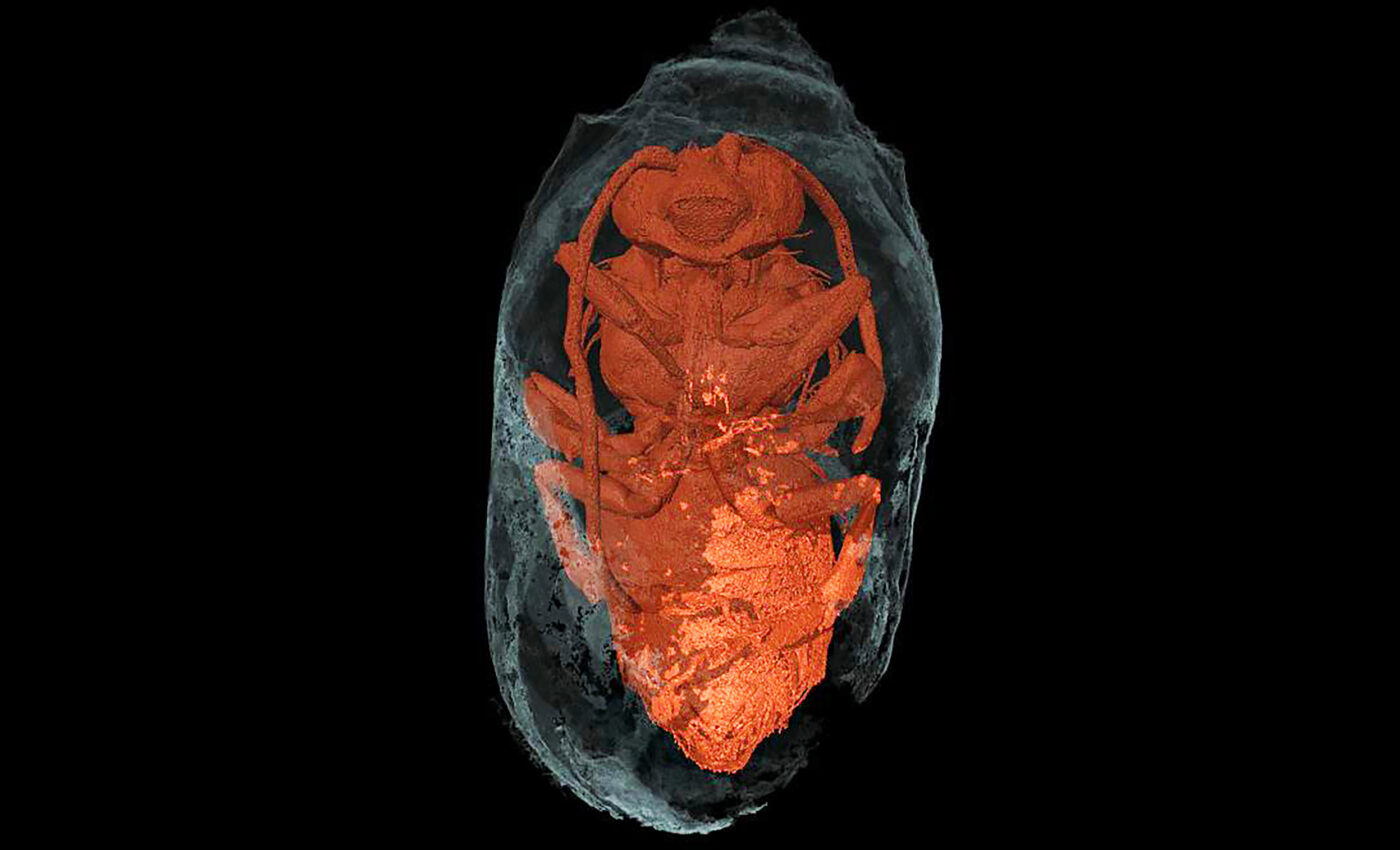
Mummified bees unearthed that date back to the time of the pharaohs
A surprising discovery of “mummified” bees dating back to the time of the pharaohs has been unearthed in southwest Portugal. The bees, preserved in their cocoons, were in a magnificent state of conservation.
The specimens’ pristine condition allowed the team of researchers to determine not only the type of bee they found, but also their gender and the specific type of pollen left by the mother when forming the cocoon.
The study, led by Professor Fernando Muñiz of the University of Seville, was recently published in the international journal Papers in Palaeontology. Within its pages, the bees are described as being on the brink of emerging from their nests or cells when they met their mysterious end.
Evidence of ancient pollen preferences
Interestingly, the food discovered within the mummified bee cocoons has been identified as Brassicaceae pollen. This pollen comes from common herbaceous species, indicating the bees’ inclination towards a specific monofloral variety.
Rare insight into the past
The high degree of fossilization in which the bees were found is unique. Typically, the skeletal structure of insects like these would deteriorate rapidly. This preservation has granted researchers unparalleled access into the lives of these ancient bees.
Bees, vital pollinators in our ecosystem, comprise more than 20,000 species. Around 75% of all wild bee species make their homes in the soil, largely contributing to the conservation of their nesting structures.
The study speaks of the discovery of dense collections of thousands of these fossil nests in southwest Portugal, with the majority being linked to the ichnogenera Palmiraichnus.
What killed these mummified bees?
As per the research, the exact cause of the mummified bees’ death remains uncertain. However, potential factors like a sudden shortage of oxygen due to rapid flooding or a drop in nocturnal temperatures might have played a role.
It’s noted that during the Neoglacial interval, the southwest coast of Portugal underwent colder spells with increased winter precipitation. This climate offered the ideal conditions for fossil preservation.
Importance of studying these mummified bees
Professor Muñiz emphasized the pivotal role bees play in our ecosystem, with them being responsible for the pollination of 70% of the crops humans consume. However, current threats like intensive farming, pesticide use, and climate change put these insects at risk. In Europe, one in ten bee species is on the verge of extinction.
According to the lead investigator, Carlos Neto de Carvalho, understanding the ecological reasons behind the existence and mysterious end of this bee population 3,000 years ago might provide crucial insights.
These insights could pave the way for strategies that ensure resilience amidst climate change, drawing comparisons between ancient ecological imbalances and current challenges threatening today’s bee species.
This recent discovery of mummified bees in Portugal not only offers a captivating glimpse into the past but also underscores the urgent need to understand and protect our bee populations for the future.
—
Like what you read? Subscribe to our newsletter for engaging articles, exclusive content, and the latest updates.
—
Check us out on EarthSnap, a free app brought to you by Eric Ralls and Earth.com.













